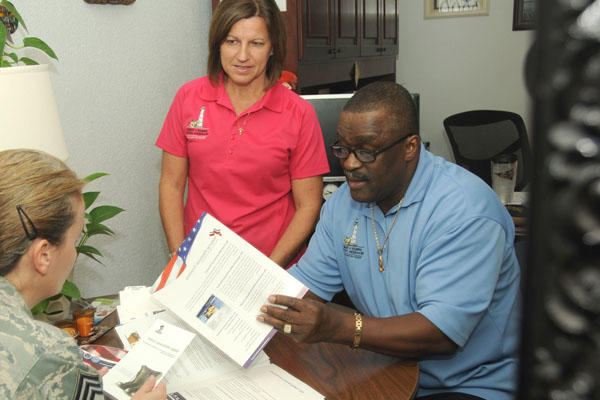Veterans often find it difficult to find a stable first job right out of the military. To help solve that problem, the Institute for Veterans and Military Families (IVMF) has launched a survey to collect information about veterans' first-hire experiences. Military.com spoke with James Schmeling, co-founder of IVMF and its managing director, about the survey and what it can offer.
Military.com: What are the goals of the VetAdvisor-IVMF survey?
James Schmeling: "The Veterans Job Retention Survey focuses on determining why veterans leave their initial post-military jobs. The goal of this survey is to understand and provide insight on the specific and unique experiences that veterans face at the beginning of their transition from military to civilian careers."
Military.com: How will taking the survey benefit veterans and service members?
JS: "The benefits of the survey are to understand initial post-military job retention and ultimately improve the retention of veterans in the workplace. Then the aim is to develop recommendations for organizations so that they can optimize the structure of their veteran-centric employee programs. We may be able to provide insights to organizational behavior experts on this under-represented employee population. Veterans consistently demonstrate contributions to the economic competitiveness of businesses and industries, and thus there are strong reasons to recruit and hire them."
Military.com: Are there any identifiable trends in veteran employment that you're hoping to learn more about?
JS: "Because this data has not been previously captured, the survey will provide insight into these trends and help us understand turnover and retention rates among veteran employees and which factors their employers may be able to influence. There is a gap in present literature about initial post-military service jobs, more so with post-9/11 veterans. The survey is targeted toward all veterans, because more research and understanding is needed about their employment outcomes."
Military.com: What are a few common problems veterans face with their first civilian job, and what tends to make the transition so difficult?
JS: "Because of limited research, there is a limited amount we know regarding the first civilian job a veteran takes. However, there has been much research on general veteran employment. One prominent study highlights that 70% of veterans report employment as the single greatest challenge experienced post-service.
"There are many gaps in the employment research, including the disconnect between military and civilian culture in employment; social supports available to veterans, which includes communities, friends, family, and peers in employment; and the identity transition, which is the process that veterans may undergo in which they move away from their identity as soldiers and into a new identity as a civilian.
"Another factor that makes transition difficult is the knowledge gap between employers and veterans: Neither understands the other as well as they could. Veterans don't know what opportunities they have in the civilian world, and businesses and industries don't necessarily understand the advantages veterans bring to the workforce."
Military.com: How can veterans access the survey?
JS: "Veterans should go to www.retainingvets.org to take the survey. It's completely anonymous and available 24 hours a day."
Want to Know More About the Military?
Be sure to get the latest news about the U.S. military, as well as critical info about how to join and all the benefits of service. Subscribe to Military.com and receive customized updates delivered straight to your inbox.











